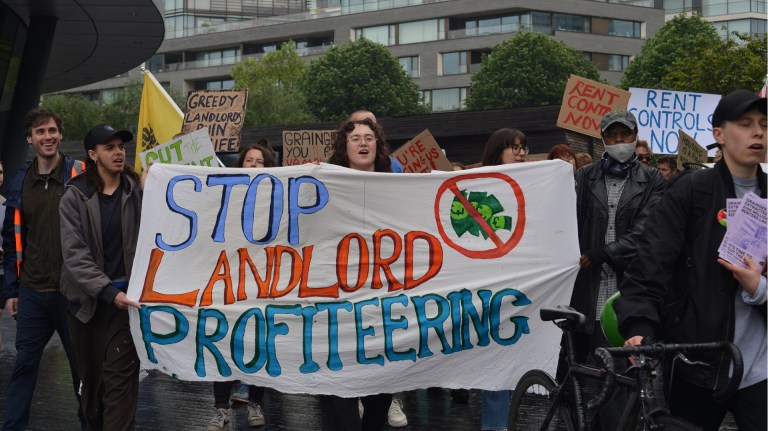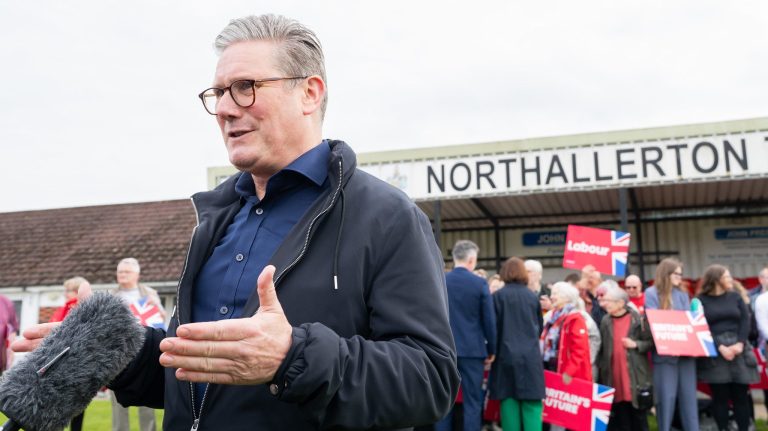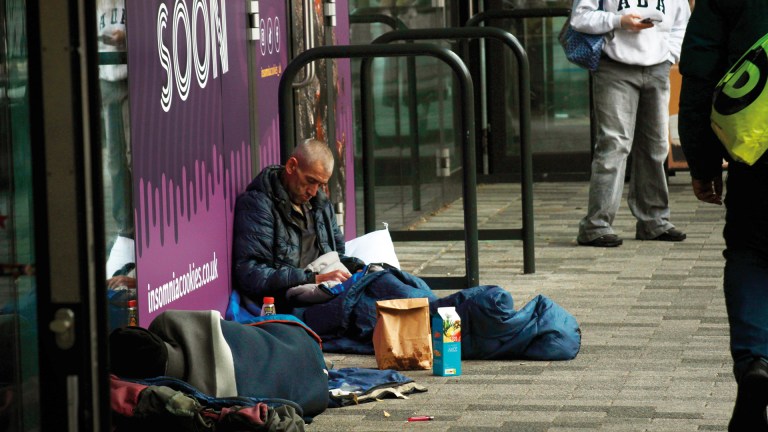Big Issue is demanding an end to poverty this general election. Will you sign our open letter to party leaders?
Housing targets have proven controversial in recent years.
The government has failed to hit the 2019 Conservative manifesto promise of building 300,000 homes a year by the mid-2020s. As Liz Truss and Rishi Sunak competed to be Conservative leader there was confusion over whether the target still stood with Truss reportedly calling it “Stalinist”.
However, Michael Gove confirmed last December that local housing delivery targets were “advisory” rather than mandatory, but pledged to introduce league tables for planning authorities to shame councils that were underdelivering.
Shadow chancellor Rachel Reeves has said Labour will reintroduce mandatory targets as part of planning reforms if, as expected, the party comes into power after the next general election.
Following his re-election as Greater Manchester mayor, Andy Burnham has targeted building 10,000 social homes by 2028 and called for Right to Buy to be suspended to protect the region’s stock.
“Greater Manchester can’t achieve its full potential as long as it remains in the grip of a housing crisis. That is why I am setting a new ambition for the city-region to end it within a decade,” said Burnham.
“Ten thousand new council homes will help to do that as long as stock can be retained. That’s why we’re calling for the suspension of Right to Buy.”
London Councils also warned the decision to remove councils’ ability to retain 100% of receipts from Right to Buy at the last budget has squeezed funding. A London Councils spokesperson said: “Without more government investment it is hard to see anything but a bleak future for social housing.”
But there remains no central target for the number of social homes delivered each year, despite widespread consensus that shortages are driving rising rents and homelessness.
Analysis from Crisis found 25,749 social homes were either sold or demolished last year in England, yet just 9,500 social homes were built – a net loss of 16,188 homes.
Around 90,000 social rent homes are needed each year, according to estimates from Shelter and the National Housing Federation.
MPs from the LUHC Committee said targets for net additions of social rent, affordable rent and shared ownership under the Affordable Homes Programme would provide a “clear direction for the social housing sector”.
The suggestion came in the committee’s investigation into the finances and the sustainability of the social housing sector.
MPs found a range of financial pressures has seen providers build fewer social homes and exacerbated a chronic social housing shortage in England.
The need to fix homes caught up in the fire safety crisis and decarbonise homes to keep up with net zero requirements has seen social providers cut the amount they spend on building new homes.
The committee heard that most of the grant funding available to build new homes is for affordable rent and shared ownership homes – where residents pay up to 80% of market prices – rather than social rent homes where rents can be slashed by as much as half.
“Significant investment” is needed to deliver more social homes, MPs concluded.
Clare Miller, chief executive of Clarion Housing Group, said the existing financial model for housing associations is no longer working, citing rising construction costs after inflation surged in recent times.
“The desperate shortage of new social housing means the housing crisis has become a housing emergency. In one of the boroughs where Clarion works, there are 150 new households a week presenting as homeless,” said Miller.
“I am encouraged to see the Levelling Up, Housing and Communities Committee reaffirm the urgent need for government investment to allow us to build at scale. This can’t come soon enough. As we head towards a general election, I’d like to see commitments from all political parties to bring forward the investment we need to deliver on a plan for housing.
“Hope is not lost. By investing in social housing, governments invest in health. They invest in jobs, and they invest in the future. I hope the government will act on the recommendations of this report and we can invest in housing together.”
Kate Henderson, chief executive of the National Housing Federation, which represents housing associations, said all political parties should commit to a long-term plan for housing.
“The sector is committed to tackling the housing crisis,” she said. “However, severe cuts to funding for new homes alongside significant financial pressure from building safety costs, the need to ensure the sector’s homes are sustainable and fit for the future, and increased repairs costs – as the sector continues to improve homes for existing residents – have inevitably led to a reduction in plans for new affordable homes. Ahead of the election, we are calling on all political parties to commit to a long-term plan for housing with funding to build a generation of new social homes.”
To fund more social housing in the future, ministers must use land value capture and reforms to grants and funding to support social housing, and help the sector deliver energy efficiency, decarbonisation, and fire safety improvements.
That includes regulated investment from the private sector and giving social housing providers the same funding as the private sector for fire safety work and building remediation.
The committee also called on ministers to provide greater certainty of rent income from England’s 4.1 million social homes.
Currently, rent increases that come into force every April are set at the rate of inflation in the autumn plus 1%. Rents in the social housing secretary rose by a maximum of 7.7% last month despite inflation falling.
MPs said the next rent settlement should run for five years and be linked to inflation but conceded that they are “very concerned” by the impact of rent rises on residents.
A Department for Levelling Up, Housing and Communities spokesperson said: “Our Long-Term Plan for Housing will support the delivery of more homes, including additional social housing. Since 2010 we have delivered over 696,100 new affordable homes, of which over 172,600 are for social rent, and we are on track to deliver on our target for new social homes.
“We are driving up standards in social housing with funding for providers to improve homes and through Awaab’s Law, which will help to ensure homes across the country are safe, decent and warm by making social landlords act to fix health hazards within a strict timeframe.”
Do you have a story to tell or opinions to share about this? We want to hear from you. Get in touch and tell us more.









